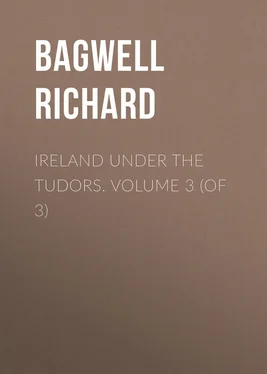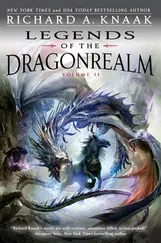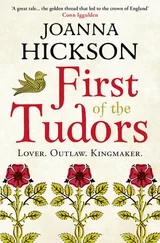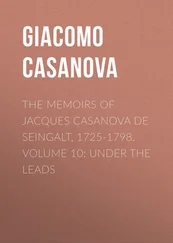Richard Bagwell - Ireland under the Tudors. Volume 3 (of 3)
Здесь есть возможность читать онлайн «Richard Bagwell - Ireland under the Tudors. Volume 3 (of 3)» — ознакомительный отрывок электронной книги совершенно бесплатно, а после прочтения отрывка купить полную версию. В некоторых случаях можно слушать аудио, скачать через торрент в формате fb2 и присутствует краткое содержание. Жанр: foreign_antique, foreign_prose, на английском языке. Описание произведения, (предисловие) а так же отзывы посетителей доступны на портале библиотеки ЛибКат.
- Название:Ireland under the Tudors. Volume 3 (of 3)
- Автор:
- Жанр:
- Год:неизвестен
- ISBN:нет данных
- Рейтинг книги:3 / 5. Голосов: 1
-
Избранное:Добавить в избранное
- Отзывы:
-
Ваша оценка:
- 60
- 1
- 2
- 3
- 4
- 5
Ireland under the Tudors. Volume 3 (of 3): краткое содержание, описание и аннотация
Предлагаем к чтению аннотацию, описание, краткое содержание или предисловие (зависит от того, что написал сам автор книги «Ireland under the Tudors. Volume 3 (of 3)»). Если вы не нашли необходимую информацию о книге — напишите в комментариях, мы постараемся отыскать её.
Ireland under the Tudors. Volume 3 (of 3) — читать онлайн ознакомительный отрывок
Ниже представлен текст книги, разбитый по страницам. Система сохранения места последней прочитанной страницы, позволяет с удобством читать онлайн бесплатно книгу «Ireland under the Tudors. Volume 3 (of 3)», без необходимости каждый раз заново искать на чём Вы остановились. Поставьте закладку, и сможете в любой момент перейти на страницу, на которой закончили чтение.
Интервал:
Закладка:
‘In the beginning of the night, Dr. Sanders, whose naturally strong frame was worn out by dysentery, thus addressed the Bishop of Killaloe, – “Anoint me, illustrious lord, with extreme unction, for my Creator calls me, and I shall die to-night.” “You are strong,” answered the bishop, “and your case is not bad, and I think there will be no dying or anointing just now.” Nevertheless, he grew worse, and was anointed at midnight, and at cockcrow resigned his spirit to the Lord, and the following night he was secretly buried by priests, and borne to the grave by four Irish knights, of which my father, Dermot, was one. Others were forbidden to attend, lest the English should find the body, and make their usual cruel spectacle of the dead.’
Sanders had been three years in Ireland. He had brought upon the country only bloodshed, famine, and confiscation, and yet among the starving people, none could be found to earn a reward by betraying him. 79 79 St. Leger to Burghley, June 3, 1581; where it appears that Sanders died about the beginning of April; O’Sullivan, lib. iv. cap. 16; Four Masters , 1581; Camden; Hooker; Holing, S.J., in Spicilegium Ossoriense , i. 94.
CHAPTER XXXIX.
THE DESMOND WAR – FINAL STAGE, 1581-1583
Desmond, his brother John, and Baltinglas were excepted by the Queen from the general pardon. Grey himself made several further exceptions, not, as he explained, that he wished to remove the hope of mercy, but only that he did not think them cases for pardon without further inquiry. Lady Desmond was excepted, as having encouraged the rebels to persevere, and as having remained with them rather than live under protection. David Barry, to whom Lord Barrymore had conveyed his lands, and Baltinglas’s brothers, Edmund and Walter, who were heirs-presumptive to his entailed property, were excepted, not only as important rebels, but lest the Queen should lose the escheats. Feagh MacHugh O’Byrne, ‘the minister of all wickedness in Leinster,’ refused a pardon unless a like were granted to Desmond and his brother, and unless ‘religion might be at liberty.’ Several other rebels or plotters were excepted, among whom it is only necessary to mention William Nugent, Lord Delvin’s brother, who had become the leader of a separate conspiracy. Perhaps Grey’s additions to the list of those whom Elizabeth thought unfit for pardon may have wrecked the whole scheme. July 17 was fixed as the last day for the rebels to come in, and up to that date very few penitents appeared. 80 80 Grey to the Privy Council, July 10, 1581; Wallop to Walsingham, July 17.
While notorious offenders abstained from taking advantage of the Queen’s clemency, it was noticed that many inhabitants of the Pale, against whom nothing was known, were eager to accept the pardon. As early as 1575 William Nugent had fallen under the suspicion of the Government, and was supposed to have an understanding with Baltinglas from the first. He eluded capture during the winter of 1580, and in March 1581 it was announced that he had conspired with some 300 of the O’Connors and MacCoghlans to raise an insurrection. A few weeks later he fled to Tirlogh Luineach O’Neill, who flatly refused to surrender him to the Lord Deputy, when he appeared in person at the Blackwater. In the autumn Nugent was back in the Pale, and suing for mercy; but he got no encouragement, and added to the weight of his offence by helping the mountain rebels to harry some of the Archbishop of Dublin’s property. When Baltinglas fled a month or two later, he made his way back to Ulster, and thence to Scotland and the Continent. A very large number of his friends and neighbours were more or less implicated, and it is easy to see why so many gentlemen of the Pale were anxious to cover themselves by accepting a pardon. 81 81 Wallop to Walsingham, March 8, 1581; L. Bryskett to Walsingham, April 21; Grey to the Queen, August 10; G. Fenton to Leicester, September 1; and to Burghley, September 21.
Clanricarde was in confinement at the time of the Smerwick affair, and it is doubtful how far he had the power to influence his sons. He persuaded the younger, William, to ask for protection, but could not make him observe the implied conditions. Maltby granted it only with a view of weakening the two elder brothers. In the meantime, and no doubt having an understanding with the Earl’s sons, 600 well-armed Scots invaded the province. They were to be paid at the rate of 4,200 l. a quarter, and it was supposed that their presence would turn the scale in favour of Richard-in-Iron, Grace O’Malley’s husband, who claimed to be Lower MacWilliam by popular election only, and against Richard MacOliver, who had been made tanist by the Queen. John Burke took advantage of the occasion to plan an attack on the O’Kellies, and the Scots encamped near Shrule, where they engaged to meet the Burkes on the 1st of March. Three days before the appointed time, Maltby made his appearance. Richard-in-Iron, who had advanced within ten miles of Shrule, at once drew back into Mayo, and the Clanricarde Burkes, hearing of the President’s movements, never stirred at all. The Scots were surprised, and Maltby, after killing a few, drove them before him to the Moy. They crossed the river, and he followed, but they made good their retreat into Ulster. The President then recrossed, and at Strade Abbey the two competitors for the chiefry of Mayo met him. They were both submissive enough to Maltby, but not at all polite to each other. Richard MacOliver said Richard-in-Iron was a traitor, that all those who elected him were traitors, and that he himself would refuse to be MacWilliam, except by the Queen’s appointment. The other told him he lied, and the President had to remind them that this was very improper language to use in the presence of the Queen’s representative. It was agreed that Richard-in-Iron should be MacWilliam, and that MacOliver should be sheriff of Mayo, receiving 40 l. a year out of the chief-rent of his barony of Tyrawley. 82 82 Relation of Sir N. Maltby’s proceedings, March 23, 1581.
About three months later William Burke, though he was under protection, took to plundering people on the highway, and had even the audacity to offer their goods for sale at Galway. He behaved so outrageously that the townsmen laid hands on him. Nine of his men were executed by martial law, and Maltby held special sessions for the trial of the chief offender. The Grand Jury found a bill for treason, and the prisoner was then tried and convicted. The verdict was considered proof of Burke having violated his protection. The Irish annalists insinuate a breach of faith; but even a free pardon would not save a subject from the consequence of acts done after its date, and Maltby seems to have been legally justified. He refused 1,000 l. for the prisoner’s life, and a like sum for that of Tirlogh O’Brien, a noted rebel who was executed two days before. 83 83 Maltby to Walsingham, June 30, 1581; Four Masters , 1581. From Maltby’s letter of September 20, it appears that Burghley approved of William Burke’s execution.
More than a year had passed since the capture of Smerwick, an amnesty had been proclaimed, and yet the end of the rebellion seemed no nearer. On January 2 a spy came to Zouch at Cork to tell him that David Barry was at Castle Lyons and might easily be taken. The Governor waited till nine o’clock at night, and then set out with a hundred men, of whom one-half were mounted. Arriving at the castle at daybreak, he found that Barry had not arrived; but in the immediate neighbourhood he lighted accidentally upon John of Desmond with three companions. He had been sent by his brother the Earl, who himself lay north of the Blackwater, to compose a quarrel between Barry and the seneschal of Imokilly. So little danger was dreamed of that Sir John and his friends rode on ponies and without defensive armour. Patrick Condon, a noted leader, and another managed to escape, but Sir John was run through with a spear and also shot in the throat by one Fleming, who had formerly been his servant. James Fitzjohn of Strancally, a cousin of Desmond, was taken prisoner. Sir John only survived a few minutes, but he was able to say that had he lived longer he would have done more mischief, and that Henry Davells was never his friend. His body was sent to Cork and hung in chains over one of the gates for three or four years, when a great storm blew it into the river. The head was sent to Dublin as a ‘New Year’s gift’ for Grey, and stuck upon a pole on the castle wall. James Fitzjohn was executed, having first confessed that the Earl was in a sad plight, and lived only by eating at night the cows that he had killed in the day. A turquoise set in gold was found upon Sir John and was sent to the Queen; his agnus dei , with its glass and gold frame, was transmitted to the Earl of Bedford. Having been designated as his successor by James Fitzmaurice, who had the Pope’s authority for so doing, John of Desmond was acknowledged as the Catholic leader, and his death was of considerable importance. He was a man of ability, and the only person fit to manage the turbulent chiefs who had never served, and who could therefore never command. 84 84 Zouch to Burghley, January 5, 1582; White Knight to Ormonde, same date; William Wendover to Fenton, January 6; Grey to Walsingham, January 13; Russell; O’Daly.
Интервал:
Закладка:
Похожие книги на «Ireland under the Tudors. Volume 3 (of 3)»
Представляем Вашему вниманию похожие книги на «Ireland under the Tudors. Volume 3 (of 3)» списком для выбора. Мы отобрали схожую по названию и смыслу литературу в надежде предоставить читателям больше вариантов отыскать новые, интересные, ещё непрочитанные произведения.
Обсуждение, отзывы о книге «Ireland under the Tudors. Volume 3 (of 3)» и просто собственные мнения читателей. Оставьте ваши комментарии, напишите, что Вы думаете о произведении, его смысле или главных героях. Укажите что конкретно понравилось, а что нет, и почему Вы так считаете.












